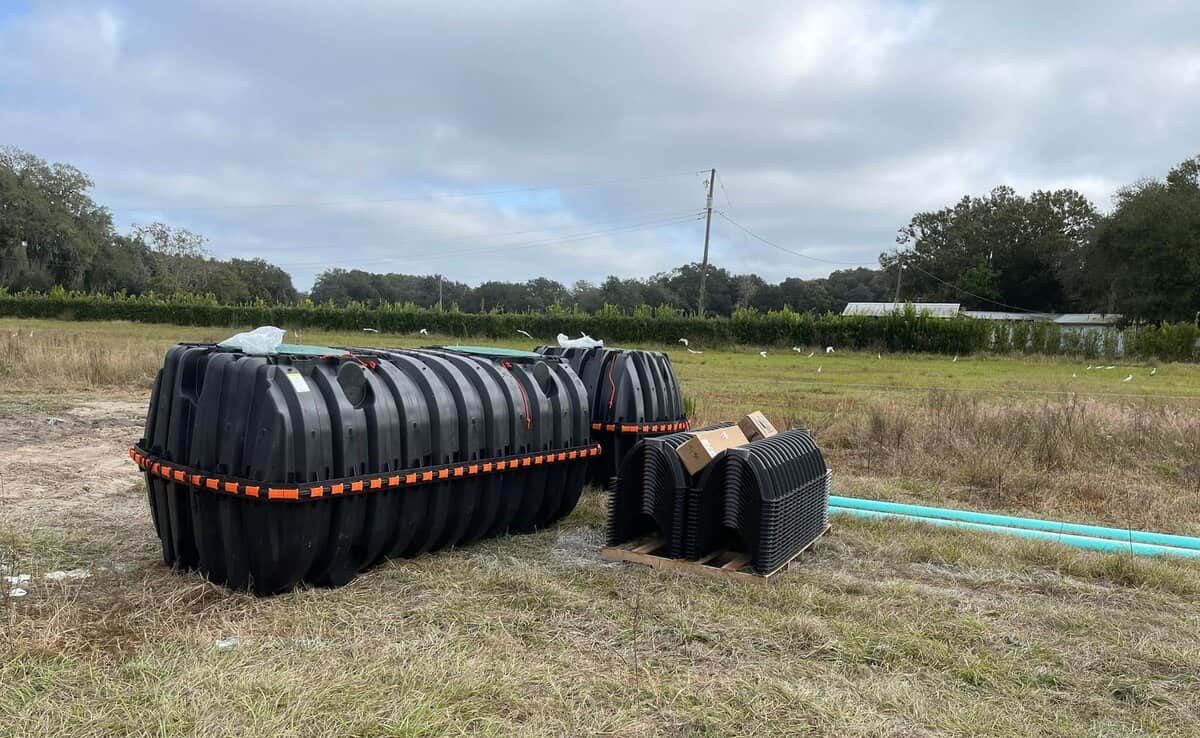Water is quickly becoming one of the most scarce resources in the world. As human populations grow, consumption of water increases as does pollution and degradation due to climate change. This leads to shortages in many areas and increasing prices for drinking water worldwide. In addition, poor management of existing systems leads to further waste and depletion of already limited resources.
As water becomes an increasingly scarce resource, more and more homeowners are looking for ways to conserve it. One way to do this is by recycling gray water.
Recycling gray water offers many benefits, such as conserving global freshwater resources, saving money on utility bills, and increasing air quality by putting fewer hazardous chemicals into sewage systems. Furthermore, studies have shown that graywater has enough nutrients to serve as an effective fertilizer for plants. Ultimately, recycling graywater is beneficial both at a household level as well as globally.
Homeowners with septic systems can benefit from gray water recycling in a few additional ways. Using graywater to flush toilets and water lawns and plants can reduce the amount of wastewater that your septic system has to process. This in turn can prolong the life of your septic system and save you money on septic tank services.

What is Gray water and Why Should You Recycle It?
Most homeowners do not realize how much water is used in the course of a day in their homes. From washing dishes to taking showers or flushing toilets, the average home uses about 300 gallons of water each day.
Water that goes down toilets or drains is called wastewater, and there are really 2 types of wastewater that leave your home – black water and gray water. Graywater is from the water that has been used in sinks, showers, and washing machines. Blackwater includes wastewater from toilets, which contains contaminants.
Graywater can be recycled for use in irrigation and toilet flushing, significantly reducing the amount of freshwater needed for these activities.
How Can Graywater Recycling Help a Septic System Function Better?
Gray water recycling can be used to supplement or replace water used for toilets and washing machines. Such systems divert grey water away from septic drain fields and instead recycle it for use elsewhere on the property, such as in bathrooms or gardens.
This reduces the amount of water put through the system, which typically requires periodic pumping to remove built-up solids that reduce performance over time. Therefore, by introducing a graywater recycling system, not only are resources being conserved but also less maintenance is required for optimal functioning of a septic system.
Simple Ways to Start Recycling Gray water
Recycling gray water at home can be an effective way to reduce costs and conserve water. Here are a few ideas:
- Install a flower bed irrigation system that recycles graywater from your bathtub, washing machine or sink for watering plants.
- Use a composting toilet if possible, as this does not require water and is a great way to recycle graywater.
- Collect graywater in barrels or tanks outside the home and use it to water lawns, gardens, trees and shrubs.
Gray water recycling systems can range from fairly simple to much more complex.
For example, a basic system might be set up like this: Water from a washing machine could be used to water plants by simply directing the rinse water into a rain barrel or directly into landscaping beds. Even though this water might have soap residue, it is generally considered safe for landscaping purposes – and it might even contain valuable nutrients.
A more complicated system might be to redirect the water from drains in sinks, tubs, showers, and washing machines to be used for watering plants. Going this route likely would require assistance from a plumber or septic professional, and might even need to be submitted for approval to municipal authorities.
Another way to use greywater is for flushing toilets. This is done by connecting the output of a water filtration system, such as an aerobic treatment unit, to the toilet’s input pipe. The water filtration system then filters out any contaminants, such as bacteria or heavy metals that may be present in the gray water, and it pumps clean, safe water into the toilet. This allows for more efficient use of resources and helps to conserve freshwater.

Issues to Avoid With Graywater Recycling
While recycling gray water can be a great way to conserve water and help your septic system, there are a few drawbacks that you should consider before deciding to do it.
- Graywater contains some level of bacteria and chemicals due to coming from sources such as bath, shower and laundry water. As a result, if misused, it can lead to the growth of certain types of bacteria and algae in soil. It is generally recommended that grey water should not be stored for longer than 24 hours.
- Additionally, gray water should not be used to water edible plants and vegetables, as it might contain bacteria that could potentially contaminate the food.
- Local laws may not permit graywater recycling without an approved graywater system, or there might be specific regulations and requirements that need to be followed. It is important to investigate what the regulations are in your area before jumping into the process of grey water recycling for your home.
Gray water and Your Home’s Septic System
Recycling your graywater at home is a great way to do your part in helping to protect the environment and preserve some of our precious natural resources. For homeowners with septic systems, greywater recycling can also help to reduce the amount of water that needs to be processed by the septic tank and drain field. This can mean a longer life for the septic tank and leach field, as well as less frequent septic tank pumping or cleaning.
The Best Septic Company In and Near Lakeland
If you have questions about using gray water for your property or need any other septic services in and near Lakeland, the professional team in our Lakeland septic company is here to provide answers.
Contact us today for more information or for a free septic estimate.







